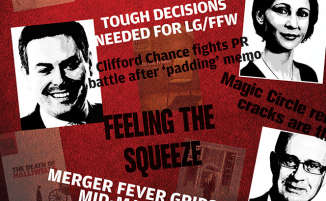For a pundit often claimed to be dismissive of the PR community, the subject of this leader may surprise. The reputation was never that accurate – I’ve always said skilled comms professionals are an asset to major law firms – but let’s put that to one side for now. The topic is something I’ve been noticing for some time: the slow decline of the PR professional as consigliere to law firm leaders. While the breed was never plentiful, it wasn’t that long ago that there was a sizeable group of battle-hardened comms hands that had judgement, integrity, long contact lists and who were effective as support and sources of information to managing partners. Plenty had worked outside the legal industry – indeed, they were usually more adept if they had in their junior years – but they had built strong knowledge of the dynamics of the profession and the realities of working for partnerships. They could make things happen and tell partners what they didn’t want to hear.
At their best they were a useful bridge to the outside world and there to help the firm push the message outwards, ever outwards, be that to clients, potential clients, or the wider industry. The best were also facilitators, focused on hooking up management and a Praetorian guard of headline-friendly partners with the better, relevant journalists and helping relationships flourish. Continue reading “Whatever happened to the PR as managing partner consigliere?”













